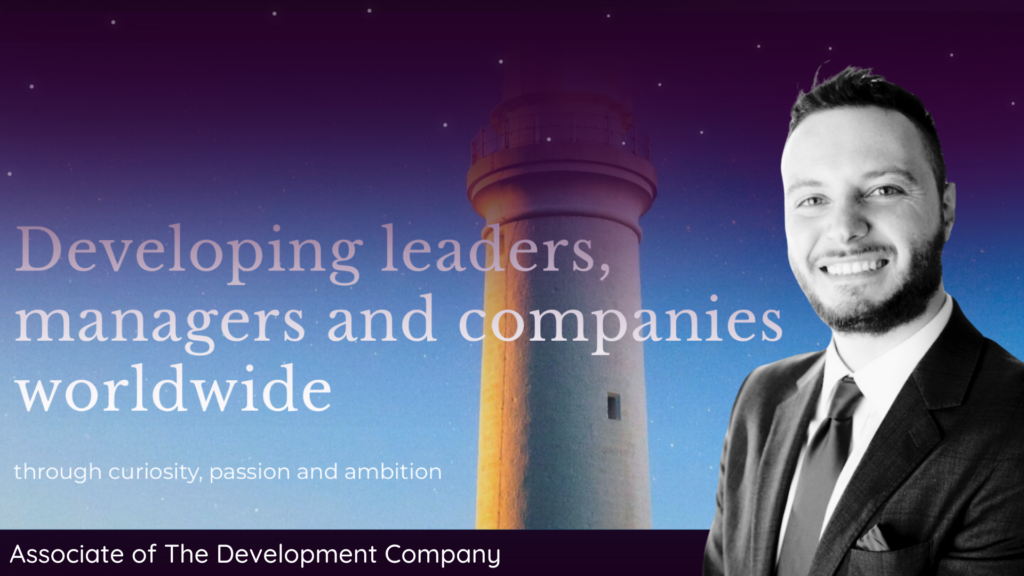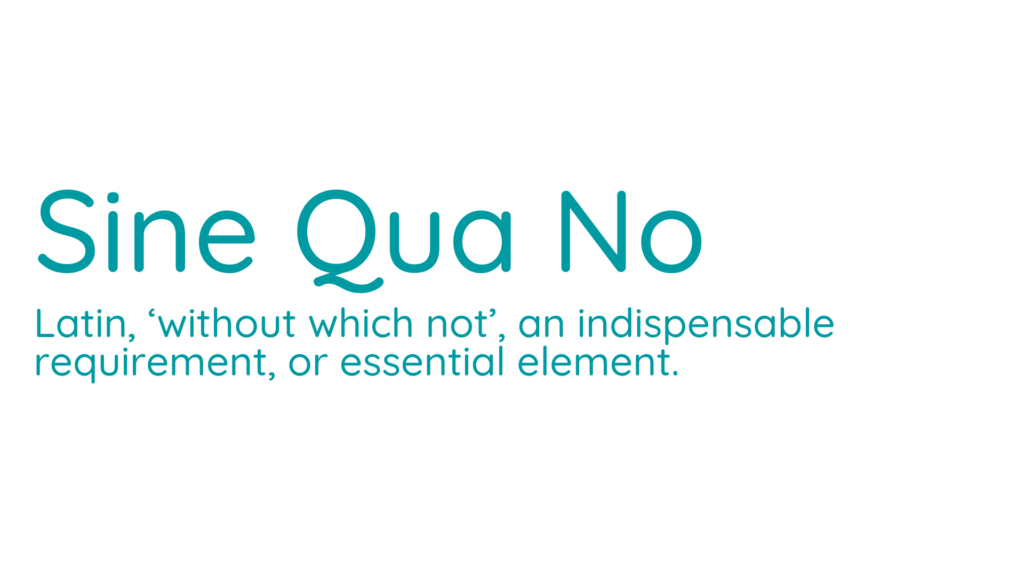From high-stakes meetings, to pitching, negotiation and presentations; we all understand that the power of language is indispensable when it comes to business. The more in-depth knowledge you have of your own language (or, even better, one of the Romance languages) the easier it will be for you to form connections between words and their meanings, as well as learning new languages altogether. DCo associate and this month’s polyglot guest, Daniele Perchiazzi, walks us through the etymology of the corporate worlds favourite buzzwords.
Language profoundly impacts the brain; affecting its structure, function, and cognitive abilities. From enhancing neuroplasticity and executive functions to delaying cognitive decline, the role of language in brain health is substantial. This underscores the importance of linguistic education and the cognitive benefits of multilingualism.

Perchiazzi, first discovering the importance of a multi-discipline perspective during his masters studies in city planning. Giving him a unique and targeted perspective when it comes to organising people in large organisations.
Daniele Perchiazzi started his career within the luxury industry, where his focus was his company’s’ expansion. He soon realised that his real passion was working with his team, helping them to develop and unlock their full potential. He invested his time into understand how he could use this passion in his profession life, & naturally started coaching.
Since, he has worked in the field of Learning & Development for 12 years as a Corporate & Executive Coach and Trainer with mid-senior management in Retail industry, Finance, Insurance and Banking. And now researches the luxury consumer from an unconscious point of view.
What are the unconscious motivators to push people to buy a luxury, good or service or not?
The impact of language on the brain
Isn’t it strange that words can sometimes hurt as much as a physical hit?
Choosing your words is important. Learning a new language or even using language in creative ways increases the neuroplasticity of your brain. Bilingualism has also been linked to improved executive functions, such as problem solving, task-switching, and working memory.
Learning languages later in life still significantly impacts the brain, delaying the onset of age-related cognitive decline and even provide a protective effect against diseases like Alzheimer’s’.
Perchiazzis’ focus on language is to bring people up to the best versions of themselves through communication. The first step in personal improvement is effective communication.
Since not as many people understand the origin of words anymore, those who do have an increased advantage in influencing, persuading, and convincing.
Perchiazzi understands that proficiency in the etymological meaning of words gives you an upper hand in business communication. Increasing your effectiveness in inspiring, motivating, and leading is as simple as picking up a dictionary.
More than that, a deeper understanding of language allows you to better filter the bombardment of information which we are consistently exposed to in the 21st century. Daniele Perchiazzi goes on to explain that in terms of critical thinking, language can be a form of self defense, allowing you to get passed the white noise, charm and over-used buzzwords in business.
Perchiazzis’ father is a writer of Neurolinguistic Programming, thus it’s no surprise that words and the mind have captivated Dan’s attention as well.
To read more about wording and structure, click here.

Bridging understanding and meaning
We often substitute or use words as umbrella terms when it’s not correct. What’s the problem with this? It ends up taking away from a sense of authentic communication.
Certain buzzwords like ‘stakeholder’ for example, or more commonly today, ’empathy’ get misused all the time because they are recognisable.
The risk with using powerful words in a flippant way is that it;
a) Devalues the word itself.
b) Conflates the word with different meanings.
The point and meaning of your statement becomes shrouded in ambiguity, and your audience ends up asking an array of questions surrounding its meaning, urgency, point, and direction. The overuse and misuse of words reduces recognition, accountability or responsibility.
Language & leadership?
Everyone can showcase traits of great leadership but as Perchiazzi points out…
But, you cannot be successful without making your team successful first. Perhaps in the short term, yes but it is not sustainable. Everlasting success is in the team. Confidence and competence in a team equals confidence and competence in you.
Developing your teams cannot be an after-thought.
A great leader must have a genuine interest in empowering the team. Verging on altruism, this interest should even empower them to be able to replace you one day. Since true leadership is future focused, you must be able to take yourself and ego out of the equation.
Perhaps, stemming from his education in City Planning, Perchiazzi applies a ‘regeneration’ factor into his leadership approach.
In the same breath, facing your fears and what Jungian psychology recognises as your ‘dark side’, will help you learn to control yourself. Perchiazzi stresses that great leadership comes from an internal rather than external place. Relying on external factors to put you in the best place to lead is too unreliable, you must know how you respond in times of uncertainty.
There is disconnect between agreeing intellectually about what leaders should and shouldn’t do versus what actions leaders actually take.
The Shape of Leadership
- Leadership – ‘the characteristics necessary to be a leader, capacity to lead’
Is the ability of someone to show the path (‘leader’ from German), and old English suffix ‘ship’, relating to ‘shape of’. Leadership is thus not only the skill, but the state of being, and the ability to assume the ‘shape’ of a leader.
‘The first 50% of ‘leadership is leading and giving direction, the other 50% is state of being.’
Daniele Perchiazzi, Point In Leadership Podcast
Before assuming a leadership role, you must ask yourself if you are in the right state or not; mentally and physically.
Everyone complains about lack of internal resources, but have you ever stopped and reflected on your internal resources? What is the value that you truly add if you are only applying external resources to your team.
‘How do you problem solve? Cope with complexities, uncertainties, differences, and changes? How do you work, how do you react? If you don’t know yourself, you cannot lead yourself, then how can you lead others?’
Daniele Perchiazzi, Point In Leadership Podcast
This perspective on leadership speaks a lot to personal resilience.
- Manager
Ultimately from Latin manus, meaning ‘hand’. A manager must be first good with their own hands before directing and teaching others. (More recent history, connects manager with the Italian maneggiare in horsemanship, meaning ‘to handle, or control a horse’.)
Management starts with coaching, but managers don’t often get the time to do that.
One of the current challenges which businesses are facing today is that there are endless to-do lists and KPIs. People don’t have the time to fully understand what it means to be a manager.
This is why it is necessary to stop and simplify, even return to the original definition or format of a word or action.
There’s an expectation that you also lead as a manager, but how many organisations provide support to managers, allowing them to be effective leaders and managers?
People enter these roles because they’ve been promoted to more responsibility and accountability in the organisation without any intent being laid out about why and how they are to complete that role.
Empathy & Theory of Mind
We talk about empathy all the time, now more than ever, often as a synonym for sympathy. But empathy quite literally translates to ‘into the emotions of another’.
What people miss is the effort that you have to pay to be empathetic, most people have to work hard to learn and demonstrate empathy, as it’s not necessarily a natural skill to have.
When we talk about empathy we also neglect the effort it takes. We need to tell people that it’s not easy, not always natural, and ask them if they are genuinely willing to make the effort to jump into someone else’s box of emotions.
If so, teaching the the next steps like deep listening etc. will work. Otherwise you are just going through the bureaucratic motions of any other business.
We have to understand the benefits of making the effort otherwise we do not place ourselves in the right state of mind of understanding & attention. If you are forced to do something, you are immediately placed in the wrong spot.
To get the most out of any type of self improvement or team building, you must shift from compliance to commitment.
Proficiency in languages enhances the ability to understand and predict others’ thoughts & emotions, fostering more complex social interactions. In addition, since language helps in articulating thoughts and feelings, those who can express themselves better can also regulate themselves better.
As well as improving self expression, multilingualism has the added natural benefit of an increased cultural perspectives.
Resources
- Discover more about Daniele Perchiazzi: LinkedIn, TotalLeadership
- Read Shakespeare to Become a Better Leader
- Free Download: KEY LESSONS ON: COMMUNICATION AND DECISION MAKING






